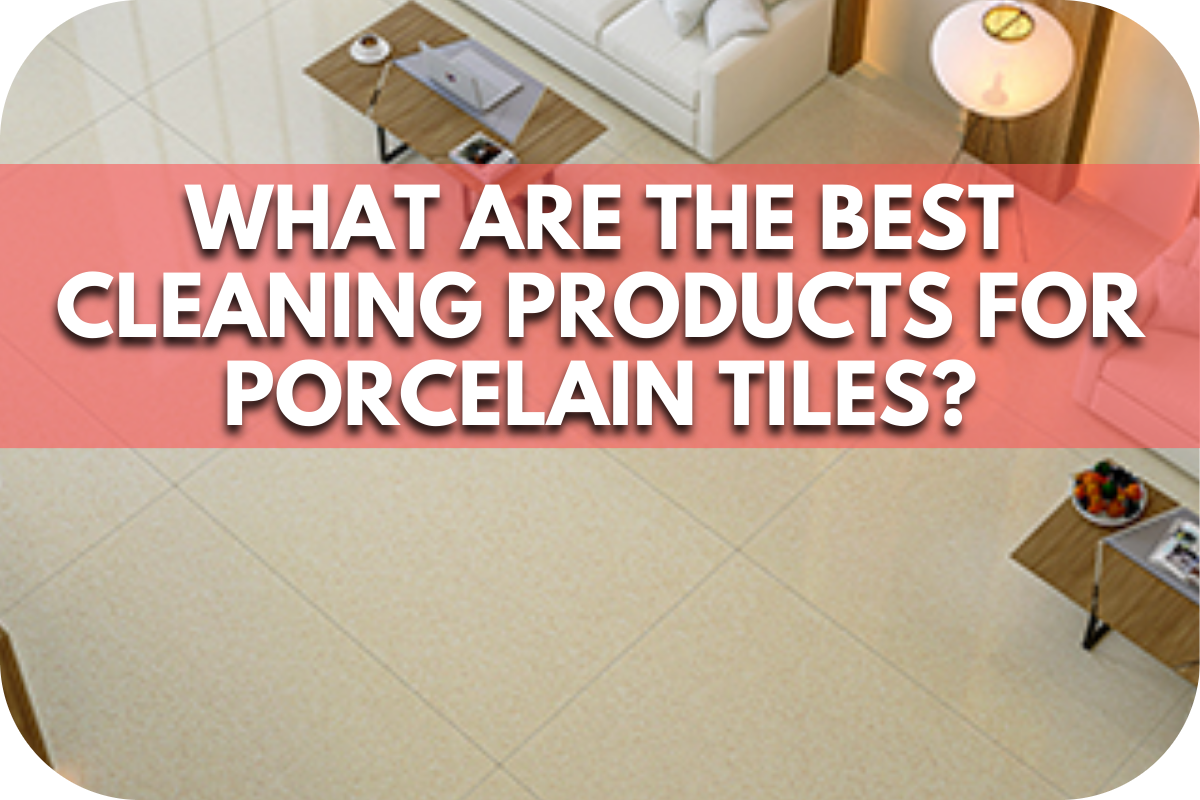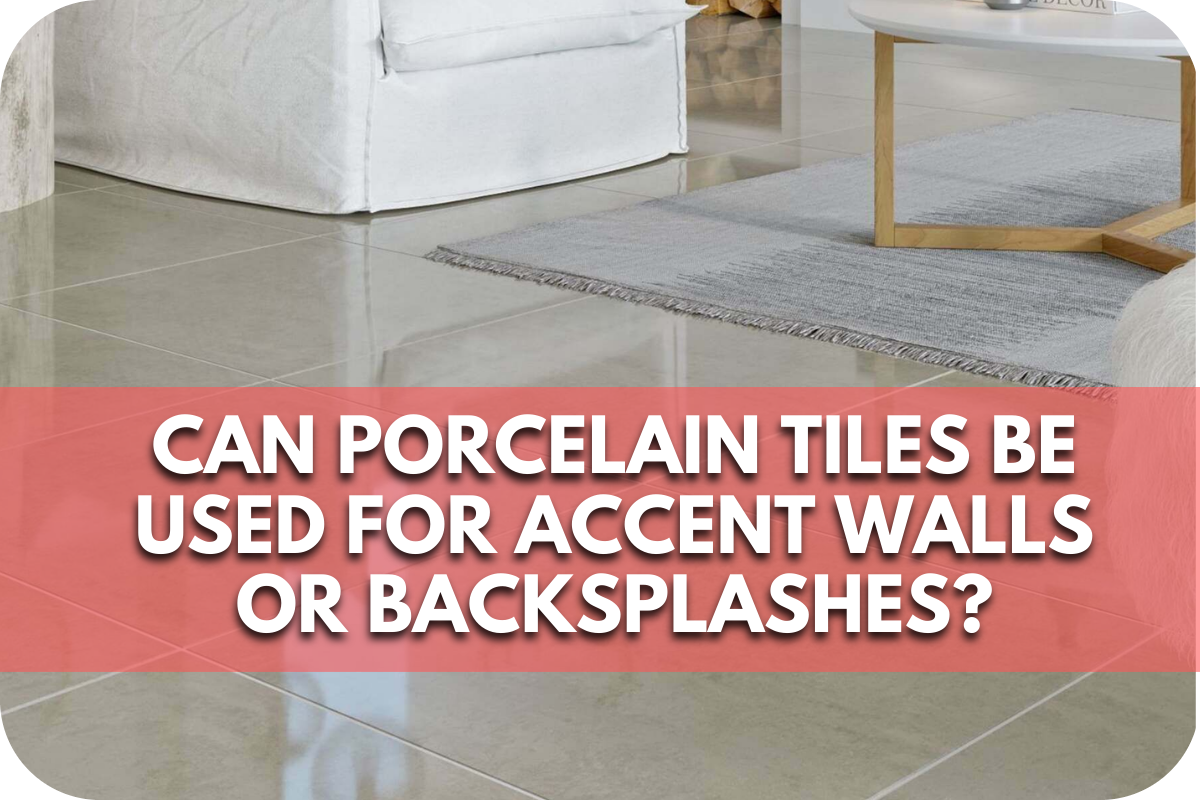What Are the Best Cleaning Products for Porcelain Tiles?
Have difficulty keeping your porcelain tiles looking as pristine as the day they were installed?
Using the wrong cleaning products can cause dullness, stains, and even damage to your beautiful tiles.
In this article, we’ll explore the best cleaning products for maintaining the shine and longevity of porcelain tiles, ensuring they remain a stunning feature of your home.
1. pH-Neutral Cleaners
When cleaning porcelain tiles, pH-neutral cleaners are crucial for preserving their integrity and appearance. These cleaners are formulated to be neither acidic nor alkaline, striking a delicate balance that prevents damage to the tiles’ surface while effectively removing dirt, grease, and grime.
The benefit of pH-neutral cleaners lies in their gentle yet effective cleaning action. They are safe to use on glazed and unglazed porcelain tiles, ensuring that the protective glaze or natural finish is not compromised. This helps maintain the tiles’ original lustre and prevents dullness over time.
Moreover, pH-neutral cleaners are suitable for regular maintenance, as they do not leave behind residues that can attract dirt or affect the tiles’ slip resistance. They are also less likely to cause discolouration, making them ideal for interior and exterior porcelain tile surfaces.
When choosing a pH-neutral cleaner, choose products specifically designed for porcelain tiles. Follow manufacturer instructions regarding dilution ratios and application methods to achieve the best results without unnecessary scrubbing or rinsing.
2. Mild Detergents
Mild detergents offer a balanced approach to cleaning porcelain tiles. They combine effective dirt removal with a gentle touch that preserves the tiles’ quality. These detergents are typically formulated to be soap-free and non-abrasive, ensuring they do not scratch or damage the tile surface.
One of the key advantages of using mild detergents is their versatility. They can safely clean both glazed and unglazed porcelain tiles without causing discolouration or dulling the finish.
Their gentle formula makes them suitable for regular cleaning routines, effectively removing everyday dirt, stains, and spills without harsh chemicals.
When selecting a mild detergent for porcelain tiles, look for products specifically labelled as suitable for tile cleaning.
Avoid harsh cleaners that contain acids or abrasives, as these can degrade the tile surface over time. To achieve optimal cleaning results, follow manufacturer guidelines for dilution ratios and application methods.
3. Specialised porcelain Tile Cleaners
Specialised porcelain tile cleaners offer targeted solutions for maintaining the pristine appearance of porcelain tiles. These cleaners are specifically formulated to address porcelain surfaces’ unique properties and needs, ensuring effective cleaning without compromising the tiles’ integrity.
The key advantage of specialised cleaners lies in their ability to tackle stubborn stains, grout discolouration, and residues that regular cleaners may struggle to remove.
They are often designed with enhanced cleaning agents that penetrate and lift dirt from both glazed and unglazed tiles, restoring their original shine and colour.
When choosing a specialised porcelain tile cleaner, consider pH-balanced products free from harsh chemicals. These cleaners are gentle on the tile surface while providing powerful cleaning action. Follow manufacturer instructions for application, ensuring proper dilution and adequate dwell time for optimal results.
Using specialised cleaners periodically helps maintain the tiles’ lustre and durability, preventing build-up that can dull their appearance.
4. Homemade Cleaning Solutions
For those who prefer natural and cost-effective alternatives, homemade cleaning solutions can be highly effective for porcelain tiles.
A vinegar and water solution is a simple yet powerful cleaner. Mix equal parts of white vinegar and water in a spray bottle. This solution is excellent for regular cleaning and disinfecting, as vinegar’s acidic nature helps break down grime and kill bacteria. However, avoid using it on unglazed tiles, as the acid can be too harsh.
Another effective homemade cleaner is a baking soda paste. Mix baking soda with a small amount of water to form a thick paste. Apply the paste to stained areas and let it sit for a few minutes before scrubbing with a soft brush or cloth.
Baking soda is mildly abrasive, making it perfect for removing tough stains without scratching the surface of your tiles.
A potent cleaning mixture of lemon juice and baking soda is created. Lemon juice’s natural acidity and baking soda’s abrasive properties work together to tackle stubborn stains and leave your tiles smelling fresh.
Mix the juice of one lemon with enough baking soda to form a paste, apply it to the tiles, and scrub gently.
Avoiding Harmful Products
Using the wrong cleaning products on your porcelain tiles can cause damage and reduce their lifespan. Here are some products to avoid:
- Acidic cleaners: Cleaners with high acid content, such as bleach or vinegar, can etch and discolour porcelain tiles, especially unglazed. These products can damage the tile’s surface and weaken grout lines over time.
- Abrasive cleaners: Scrubbing powders or abrasive pads can scratch the surface of porcelain tiles, leaving them dull and prone to further damage. Stick to soft cloths or non-abrasive sponges to maintain the tile’s finish.
- Ammonia-based products: Ammonia can discolour and damage porcelain tiles. It can also weaken the grout, leading to potential cracks and water damage. Avoid products containing ammonia to keep your tiles in top condition.
- Oil-based cleaners can leave a residue that attracts dirt and grime, making your tiles look dirty more quickly. They can also make the surface slippery, posing a safety risk.
- Coloured cleaners: Some coloured cleaning products can stain or leave residues on light-coloured porcelain tiles. Stick to clear or white cleaners to avoid unwanted stains.
Cleaning Tools and Accessories
Using the right tools and accessories is crucial for effectively cleaning and maintaining porcelain tiles. Here are some essential tools to consider:
- Microfibre cloths: These cloths are excellent for dusting and cleaning porcelain tiles without scratching the surface. They are highly absorbent, trap dirt and dust efficiently, and can be used dry or slightly damp for a streak-free finish.
- Soft-bristle brushes: Soft-bristle brushes are ideal for grout lines and tougher stains. They provide the scrubbing power needed without damaging the tiles. Look for brushes with comfortable handles for easier use.
- Mop types: Steam mops are great for deep cleaning porcelain tiles. They use high-temperature steam to sanitise and lift dirt without harsh chemicals. Ensure the steam mop is suitable for your specific type of porcelain tile. Traditional mops, such as a mop with a bucket of warm water and a mild detergent, are also effective for regular cleaning. Opt for mops with soft, non-abrasive heads to prevent scratching.
- Vacuum with a hard floor setting: Vacuuming your tiles before mopping can remove loose dirt and debris, preventing scratches. Use a vacuum with a hard floor setting or a soft brush attachment to avoid damaging the tiles.
- Squeegees: Squeegees are useful for removing excess water after mopping or steam cleaning. They help prevent water spots and streaks, keeping your tiles looking pristine.
- Grout cleaning tools: Specialised grout cleaning tools, such as grout brushes or electric grout cleaners, can help maintain the cleanliness and appearance of grout lines.
Maintenance Tips
Proper maintenance is key to preserving the beauty and durability of your porcelain tiles. Here are essential tips to ensure your tiles remain in top condition:
- Sealing Grout Lines: Sealing grout lines is crucial to prevent dirt and moisture from penetrating and causing discolouration or damage. Apply a high-quality grout sealer every six months to create a protective barrier. This will make cleaning easier and help maintain the appearance of your grout.
- Preventive Measures to Avoid Stains and Scratches: Place doormats at entrances to reduce the amount of dirt and debris tracked onto your tiles. Use felt pads under furniture legs to prevent scratches. Avoid dragging heavy objects across the floor, which can cause significant damage.
- Regular Inspections and Upkeep: Regularly inspect your tiles and grout for signs of wear, cracks, or damage. Promptly address any issues to prevent further deterioration. Clean spills immediately to avoid staining, and ensure that your daily cleaning routine is consistently followed.
- Use Appropriate Cleaning Products: Always use pH-neutral and non-abrasive cleaning products specifically designed for porcelain tiles. Avoid acidic or ammonia-based cleaners, which can damage the tile surface and grout.
- Utilise Floor Mats and Rugs: Consider using floor mats or rugs in high-traffic areas to reduce wear and tear on your porcelain tiles. This is especially useful in kitchens and entryways where spills and dirt are common.
- Routine Grout Maintenance: Besides sealing, ensure your grout lines are kept clean by scrubbing them with a soft brush and a mild cleaner. This prevents dirt buildup and keeps the grout looking fresh.
- Humidity Control: In areas prone to high humidity, such as bathrooms, use exhaust fans or dehumidifiers to reduce moisture levels. Excess moisture can lead to mould and mildew growth, damaging tiles and grout.
Conclusion
Keep your porcelain tiles looking flawless with the right cleaning products. Choose pH-neutral cleaners for daily maintenance, mild detergents for regular upkeep, and specialised cleaners for stubborn stains. Consistent care preserves their beauty and longevity. Start caring for your porcelain tiles today to enjoy lasting elegance and durability.




